Understanding and responding to a “sociopath”
At the CAPS East Conference last week, I presented my research on sociopaths. I have been collecting it all year. If you follow this blog (thank you!), you have probably run into some of what I have learned. If you want to get into the finished product with me (and I wish you would), I have put links to my previous posts at the end of this one, along with a link to the powerpoint I used in my presentation, which includes the reference list.

It all started with Trump’s portrait.
Like I keep saying, when I first saw Donald Trump’s “official portrait” I marveled at the audacious grandiosity of it. There is no hint of humility or welcome in it. It is designed to intimidate. It matches his endless talk about “winning.” I admit I ignored it. I laughed it off.
But after his re-election, I decided I needed to turn back and face what we are all facing in that face. Now we know how disorienting and frightening it is to be dominated by a sociopathic president. When I started researching it, I mostly knew the stereotypes associated with sociopathy — which I just learned how to pronounce properly after church a couple of weeks ago during the coffee hour. I think I began by googling, “what is the go-to book about sociopaths?”
I found the book and started with it: The Sociopath Next Door. Martha Stout’s classic from 2005 reads like a prophecy these days. It is academic enough. But its strongest point is its collection of case studies which prove her point: you might run into a sociopath next door and there are responses you should have ready when you do.

Can you diagnose someone you’ve never met?
I just suggested Trump is a sociopath. People asked me if I were afraid I had offended someone when I did the same at the conference. The president already has us scared to exercise our consciences in the face of the uncertainty of what my happen to us! I was not afraid to present my arrangement of evidence-based psychological study integrated with my Christian practice.
The most arguable thing I did was suggest Trump fit the definition. Because I agree that a professional cannot effectively diagnose someone they have never met. At the same time I also agree with people who say that diagnoses, in general, are rather suggestive and subjective even when one does know a person. I also agree with thoughtful people who say the ethics about diagnosing public figures may be outdated.
The APA formally added the Goldwater Rule to the ethics code in 1973, some time after Barry Goldwater won his libel case against Fact Magazine. Fact published a survey of psychiatrists regarding his mental fitness to be president. He was not found to be fit. He lost by a landslide in 1964.
Like many ethics rules, the Goldwater Rule is roundly debated, especially when it is seen in light of a psychotherapist’s general duty to give warning when they know or even suspect sexual predators and murderous people are likely to act. With A.I. and years of constant exposure, writings, and history we can access about people like Donald Trump, things may be different than in 1973. Unlike most people on the Anti-social Personality Disorder spectrum, Trump does all his sinning brazenly, like tearing down the East Wing of the White House last week.
We have a lot of evidence for Trump’s sociopathy. For instance, Trump’s niece, Mary, a clinical psychologist, wrote the book (pictured above). She and Michael D’Antonio, a biographer, provide quite a bit of evidence for Trump being a sociopath. For instance, his mother was sick for a year when he was 2. His father Fred trained his sons to be “killers,” no empathy or vulnerability allowed. In the Art of the Deal Trump recalls giving his music teacher a black eye as an elementary kid. He was banished to military school at 13 where he was a loud-mouthed bully. George Conway put all the evidence together in an ad sponsored by his Anti-Psychopath Pac. (Access via Bing. I think he is banned on Google).
Anton Ashcroft (seen above), working in forensic psychology in 2016, wrote Donald Trump: Narcissist, Psychopath or representative of the people? He claims, though he has never met Trump, it is his duty to warn people before they normalize his behavior. Your conscience will have to be your guide when his evidence calls for your conclusion.
2016 seems like a long time ago, now that Trump is fomenting a war with Venezuela and Mike Johnson refuses to let the House of Representatives convene. Ashcroft’s resistance is to a bygone ethics which presume an orderly set of institutions and common assumptions about propriety. Those presumptions are gone, it seems. So his diagnosis may be more relevant than ever, now that the traits of 4% of the population, many of whom are in prison (unless Trump has pardoned them), are being worked into the government, into world society, and into our individual lives.
No one has ever known what to do when the people on the sociopath spectrum — the People of the Lie as M. Scott Peck named them, get into power (which they normally don’t). People either try to avoid them or kill them. But killing them is not an immediate option for me. So I have been trying to understand them, at least, and discerning the most helpful responses God can suggest.
The research leads to the right questions
Martha Stout’s book is a plea to people of conscience to recognize and resist the ruthless among them. Her book formed the heart of my presentation. She helped me learn how NPD, ASPD, sociopathy and psychopathy form a spectrum of disorders coming into prominence in this “age of monsters.”
Counselors and educators can provide a truth-telling service to the unsuspecting society who cannot fathom the lack of conscience and single-minded will to power this 4% of the population suffers under.
We need to clarify what we are dealing with.
- The definition of these people has become a bit muddy.
- Is there really no cure for Anti-social Personality Disorder?
- The idea of conscience needs to be clearer.
- Are the assumptions about conscience fading with the diminishing influence of Judeo-Christian morality?
- The factors, other than immorality, which cause sociopathy, need to be better researched and known.
- Treatment options and interventions need to be more available to therapists, parents and law enforcement.
How do we respond to a person who has no guilt or shame, even biologically? I offered eight ways to respond and zeroed in on protecting our individual and societal consciences. I also highlighted the increasingly prevalent strategy of domination people on the ASPD spectrum use called DARVO — V.P. Vance has become as expert.
The definition of “sociopath”
I use the term “sociopath,” even though “psychopath” might work just as well. Neither term has a well-differentiated definition and neither appears in APA’s DSM – the repository of approved definitions for psychotherapists and researchers. But both terms are titles for ongoing study on the disorder. The American Psychological Association (APA) developed the term Anti-social Personality Disorder (ASPD) because the terms sociopath and psychopath stigmatized people who got labeled that way.
Here are the criteria for ASPD: 1) failure to conform to social norms, 2) deceitfulness, manipulativeness, 3) impulsivity, failure to plan ahead, 4) irritability, aggressiveness, 5) reckless disregard for the safety of self or others, 6) consistent irresponsibility, 7) lack of remorse after having hurt, mistreated, or stolen from another person.
Martha Stout adds color to the list to make it clearer: 1) sociopathic charisma, 2) a grandiose sense of self worth, 3) the need for stimulation, risk taking, 4) pathological lying, defrauding, 5) callousness, no empathy, the inability to bond.

What do we do with a sociopath?
I say we have one planted in the White House and he must be removed before the weed comes to its inevitably rotten fruit. He is shamelessly pasting his picture over our lives. He would like to carve himself in Mt. Rushmore, put a Trump Arch in Washington DC and receive a Nobel Peace prize for settling conflicts he did not settle, even as he creates conflict that makes the whole world unsettled. His lies have a Wikipedia page.
When we encounter people on the ASPD spectrum in our daily lives, even if we are not certain, we must do our best to discern the motivation behind their behavior and respond to them as they are, not according to their deceptions or our idealizations. We must attend to our personal health and the health of society. We might not have all the solutions or have the power to effect the necessary changes — but our voices matter; our responses matter. Having a clear conscience before God and others matters.
We can have some empathy for the conscienceless and imagine the horror they would experience, if they had the capacity to do so. Martha Stout says:
Imagine — if you can — not having a conscience, none at all,
no feelings of guilt or remorse no matter what you do,
no limiting sense of concern for the well-being of strangers, friends, or even family members.
Imagine no struggles with shame, not a single one in your whole life, no matter what kind of selfish, lazy, harmful, or immoral action you had taken…
You can do anything at all, and still your strange advantage over the majority of people, who are kept in line by their consciences, will most likely remain undiscovered.
How will you live your life?
What will you do with your huge and secret advantage?
We can love sociopaths with everlasting love. We might be able to help them. But don’t offer sociopaths pity and don’t waste your time shaming them (which is essentially negative pity). Never assume they are like you, with your guilt, shame and doubts; they are not. Keep asking, “What are they doing with their huge, secret advantage?” And tell the truth about your answers — to yourself and to everyone who will listen.
My previous blog posts on this subject.
Say “No” now: It won’t get better. (April 7, 2025)
Is a sociopath training you for evil?: 8 ways to spot one and survive them. (May 12, 2025)
Recognizing DARVO is the first step to freedom: 5 practical responses. (August 25, 2025)
Your conscience is in danger: The Bible can help. (October 20, 2025)
The slides for my presentation, which include the references are here: Google Slides









